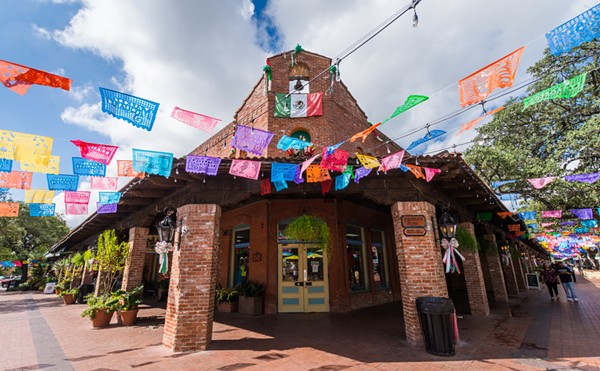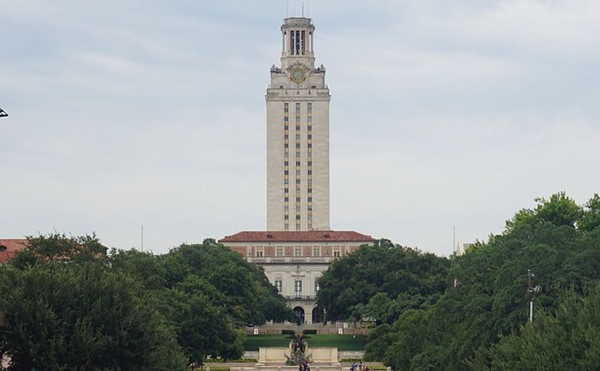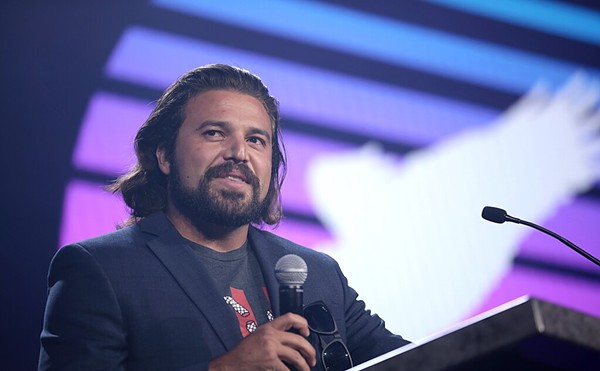Such an exchange is impeded because Zedillo no longer lives in Mexico, having recently moved his official residence to Connecticut where he now chairs the Center for The Study of Globalization at Yale University, his alma mater. A longtime champion of globalization, Zedillo is credited with popularizing the epithet "globalphobe" during the 1999 World Economic Forum in Davos, Switzerland.
Zedillo was unique among post-revolutionary Mexican presidents in that he did not spring from the "familia feliz" or elite members of the Institutional Revolutionary Party (PRI), which ran the nation like its own private fiefdom until July 2, 2000 when right-winger Vicente Fox became the first member of the opposition to move into Los Pinos. A one-time Mexicali shoe-shine boy who won a scholarship to Yale (so the legend goes), Zedillo became president by accident. He was the education secretary in the administration of one-time crony and predecessor, the now-reviled Carlos Salinas de Gortari, and was asked to resign the post to become campaign manager for the doomed PRI presidential candidate Luis Donaldo Colosio. After Colosio was assassinated in Tijuana under the usual murky circumstances, Zedillo was the only member of the Salinas inner circle who met the constitutional requirements to take over as candidate. His nomination was cinched when he struck a bargain with the party's old guard — to which his administration would thereafter be beholden.
Zedillo's debut as Mexico's president was a grim one. Not three weeks after Salinas had affixed the presidential sash to his narrow chest, the Mexican peso collapsed and the economy nose-dived into its steepest slide since the Great Depression. At the bottom of the plunge, the winter of 1995, 10 million workers were unemployed, interest rates zoomed 100 percent, and debtors, threatened with foreclosures, declared a moratorium on loan payments that pushed the banks into technical bankruptcy. Dozens of despondent citizens threw themselves in front of subway trains in the Mexico City Metro.
Only a record-busting bailout engineered by the Clinton administration saved Zedillo's presidency. Conditions of the bailout required Mexico to deposit all of its export oil revenues as collateral in the Wall Street branch of the U.S. Federal Reserve, a stipulation nationalists considered a stain on Mexico's sovereignty.
The crisis left Zedillo with few friends outside of the loyal military, which he subsequently unleashed in Chiapas — on the very day that the U.S. loan came through — against the largely Mayan Indian rebel Zapatista Army of National Liberation (EZLN). Troops rampaged through Zapatista communities. The army organized and armed civilian counter-insurgency squads — "paramilitaries" — who were held responsible for the massacre of 46 Tzotzil Indian supporters of the EZLN on Christmas Eve 1997. Between 1995 and 1998, Zedillo presided over four massacres in the states of Guerrero and Chiapas that killed a total of 84 Indian farmers and gave Mexico a stunning black eye in the view of international human rights organizations that the president was never able to shake. To keep the Chiapas atrocities hidden from prying eyes, Zedillo launched a xenophobic crusade against non-Mexican human-rights observers that resulted in more than 400 expulsions from the country, some for life.
A devout neo-liberal economist with a near-religious faith in the free market, Zedillo dutifully complied with World Bank and International Monetary Fund dictates to privatize public services once provided by the government. Passenger service was one of the first casualties of privatization when Zedillo sold off 50-year renewable concessions to operate the nation's railroads to transnational transportation conglomerates, including Union Pacific, which was awarded Mexico's most important freight lines.
In 2001, out of office less than a year, Zedillo was appointed to the Union Pacific board of directors (Dick Cheney, presently on leave, is a cohort) for which the ex-Mexican president reportedly receives $60,000 a year for attending 12 board meetings. The appointment would seem to violate Article 88 of the Mexican Public Employees Act, which forbids former government officials from accepting employment from private corporations that have benefited from the actions of the agencies the officials once directed.
In addition to the Union Pacific sinecure (and a $12,000-a-month stipend just for being the ex-president of Mexico), Zedillo now occupies a seat on the boards of the Alcoa and Procter & Gamble corporations. Soon after he left office, United Nations Secretary General Kofi Annan asked Zedillo to steer a U.N. commission seeking new ways of financing Third World development (former Clinton treasury secretary Robert Rubin, who orchestrated the Mexican bailout, shares duties.) The ex-president also advises the prestigious Council on Foreign Relations and David Rockefeller's Trilateral Commission, in addition to penning a column for Forbes magazine lambasting globalphobia.
In his new U.S. life, Zedillo basks in his self-made reputation as a democratic reformer. The last PRI president and the first to turn over power peacefully to the opposition, in the form of Fox, Zedillo is often touted as the Great Democratizer, a kind of Mexican Gorbachev.
Such praise was, however, never universal. His former PRI colleagues, furious at his early concession to Vicente Fox, branded Zedillo a traitor and threatened to expel him from the party. Despite his PRI comrades' anger, it now appears that Zedillo did all he could to head off a Fox victory. In June 2000, one month before the election, with the right-winger soaring in the polls and the PRI desperately seeking to avoid electoral humiliation, Zedillo's director of PEMEX, the nationalized oil monopoly, a man not known for making decisions independent of his boss, signed off on a $180 million "loan" to the PRI-run oil workers' union. The union promptly triangulated at least a third of the boodle into the campaign coffers of Zedillo's hand-picked candidate Francisco Labastida. A dozen indictments in the scandal have since been obtained by Mexican authorities, including arrest warrants for the leaders of the union and Rogelio Montemayor, the former PEMEX director, who is battling extradition from a Houston courtroom. With the Pemexgate scandal spreading exponentially, even San Antonio must seem a little too close for the ex-Mexican president's comfort.
John Ross, whose most recent volume is The War Against Oblivion, the seven-year saga of the Zapatista rebellion in Chiapas, has been covering Mexican politics for the past four decades.


















